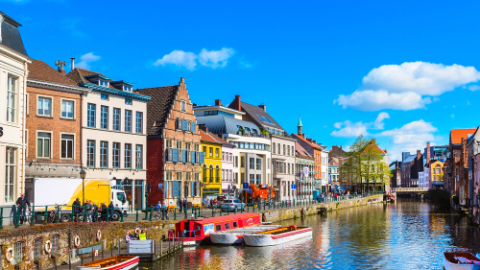
The Belgian city of Ghent’s urban food policy is one of four winners of the UN Climate Action Award in the category of Planetary Health. The policy, Ghent en Gerde: Creating Structural Change through Local Food Policy, prioritizes a shorter food chain, more sustainable food production and consumption, the creation of more added social value for food initiatives, reduced food waste, and the reuse of food waste as a raw material. According to the UN, the project demonstrates the potential to transform food systems at the local level.
Inspired by a similar approach in Bristol and Toronto, the City of Ghent set up a ‘food council’ in 2013. The Gent en Garde food policy council consists of about 25 members from various sectors, such as agriculture, associations, knowledge institutions, and commerce. The policy group acts as a sounding board for the city’s policy on food, issuing recommendations on new or existing projects, proposing new ideas, discussing the city’s strategic vision and acting as a major ambassador to help promote the city’s vision on sustainable food production and consumption.
“The big challenge now is to continue to fulfill our pioneering role,” said Ghent city councillor for the environment, Tine Heyse. “We can do that thanks to the effective co-operation of the many partners involved in the Ghent food strategy.”
The other winners in the Planetary Health category were Impossible Foods: Creating Plant-Based Alternatives to Meat, Alipay Ant Forest: Using Digital Technologies to Scale Up Climate Action, and Electricians Without Borders: Providing “Emergency Pockets” of Solar energy in Dominica.
“These inspiring examples of climate action serve as beacons, guiding us towards a more resilient, more sustainable and more prosperous future for everyone,” said Niclas Svenningsen, manager of the UN Climate Change global action program.